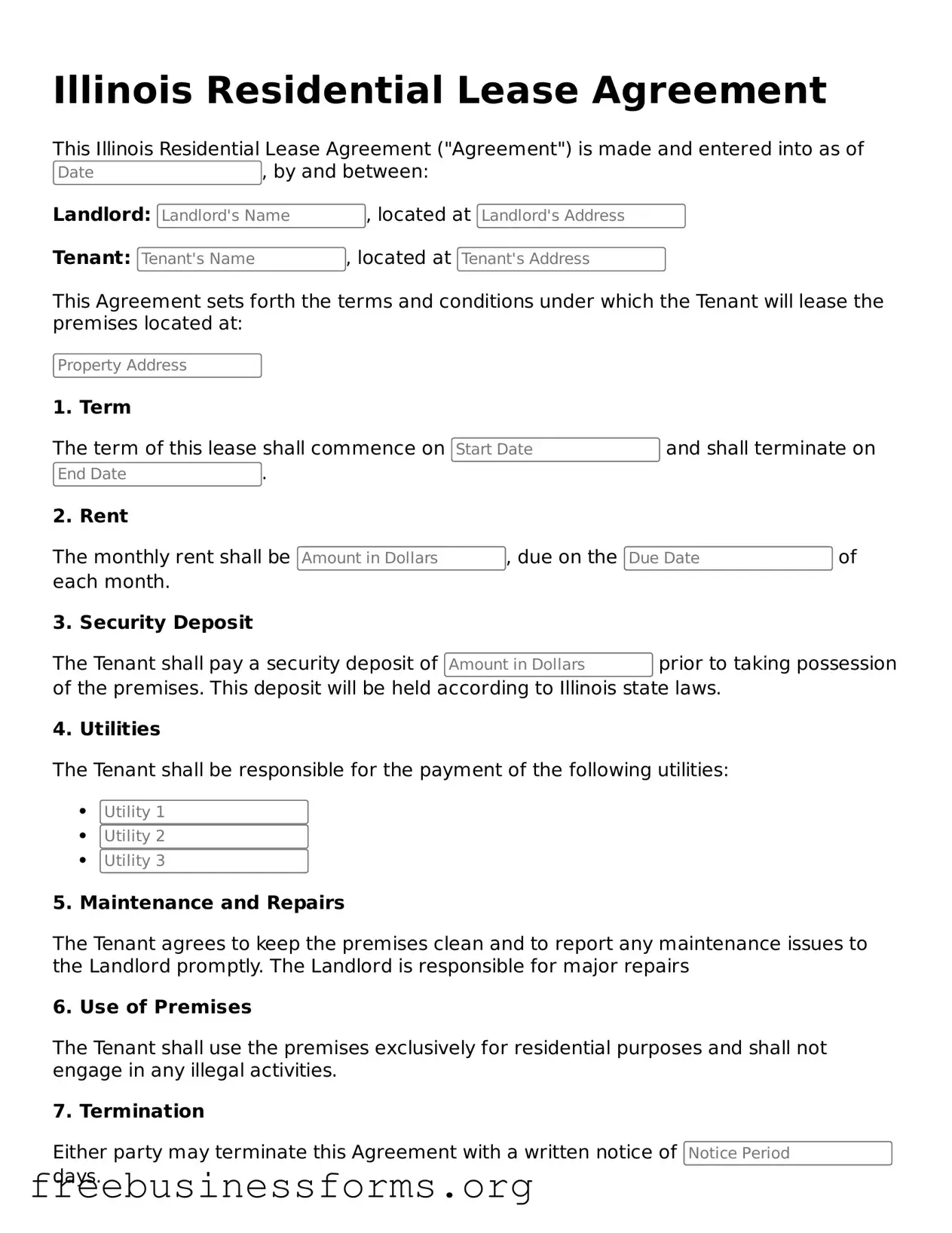Blank Residential Lease Agreement Template for Illinois
The Illinois Residential Lease Agreement is a legal document that outlines the terms and conditions of renting a residential property in Illinois. This form serves to protect both landlords and tenants by clearly defining their rights and responsibilities. Understanding this agreement is essential for anyone involved in a rental transaction in the state.
Open Form Here

Blank Residential Lease Agreement Template for Illinois
Open Form Here

Open Form Here
or
↓ PDF File
Quickly complete this form online
Complete your Residential Lease Agreement online quickly — edit, save, download.